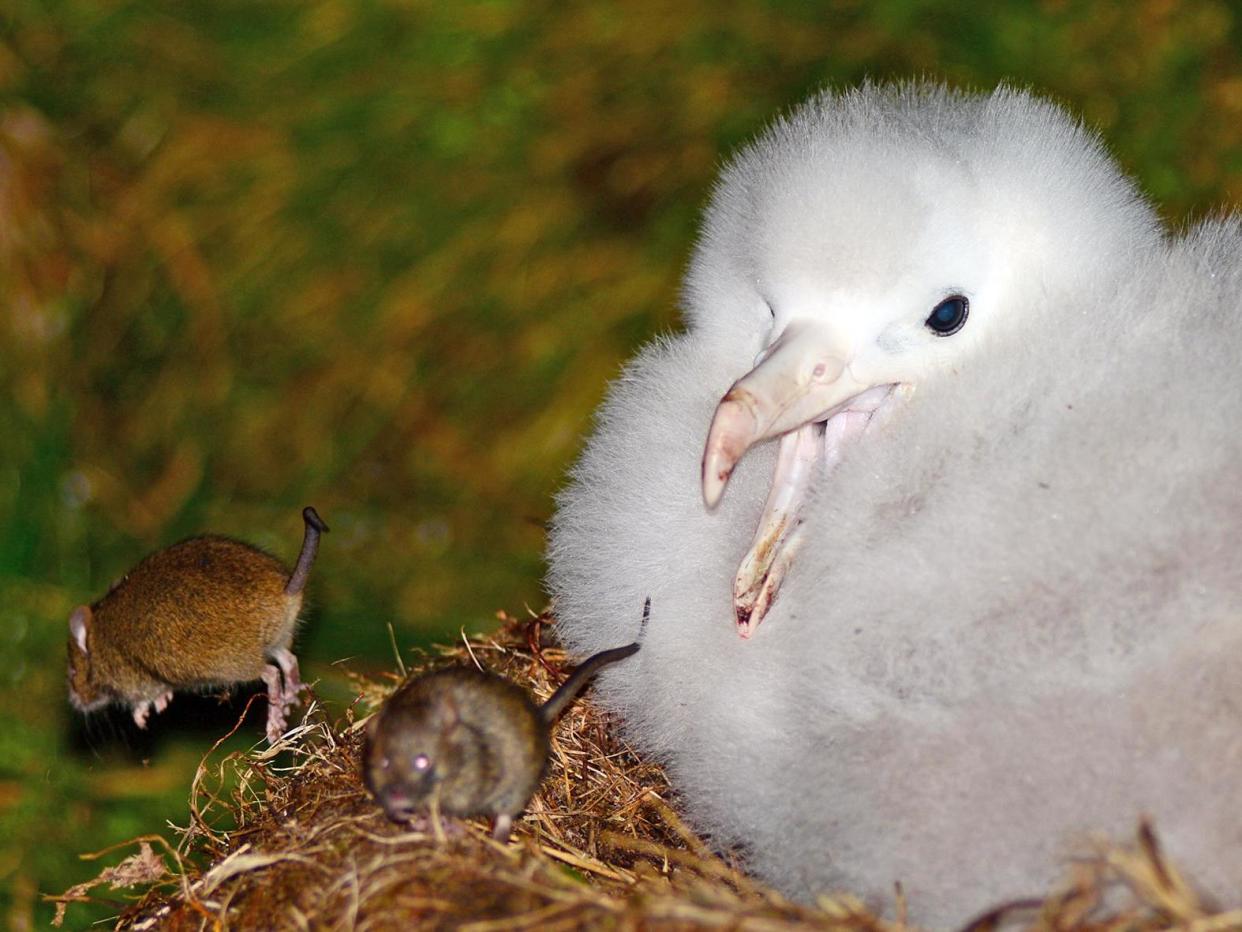Mice spotted eating live albatross brains as rodents threaten to wipe out species

House mice have begun to attack adult albatrosses for the first time and eat the brains of their still-living babies on a British Island in the South Atlantic – an environmental threat that risks pushing the bird into extinction.
The mice are not native to the territory, having journeyed to the island with sailors in the 19th century.
However as time has gone by the rodents have evolved to be 50 per cent larger than the average house mouse – allowing them to feast on the critically endangered Tristan albatross.
Now the mice appear to have escalated their predation – swarming adult birds as well as their offspring.
Much like the Atlantic Petrel which also call the territory home, the Albatross leave their young alone in the winter, making them incredibly susceptible to predation by mice.
A 2018 study found the mice are responsible for over two million fewer seabird chicks and eggs on the island each year.
But new footage has shown the rodents are also going after adult birds, attacking them in packs at night.
While the albatross species is around 300 times the size of the mice attacking them, the open wounds inflicted by their assailants frequently lead to death.
Chris Jones, Senior Gough Field Assistant said: “We have known for more than a decade that the mice on Gough Island attack and kill seabird chicks.
“While this is already of great concern, attacks on adults, which can produce dozens of chicks in their lifetime, could be devastating for the populations’ chances of survival.
“It’s a terrible development, and these gentle giants could now be lost even more rapidly than we first predicted.”
The RSPB will now work to restore the island as a haven for seabird life by eradicating the mice.
It is a plan with precedent. Norway brown rats introduced to South Georgia in the 18th century led native birds to abandon the island, however after an extensive biodiversity project the UK overseas territory was declared a rodent-free area in 2018 – allowing the resurgence of bird species including the South Georgia pipit, the world’s southernmost songbird.
However, the planned operation to eradicate rodents on Gough Island – one of the most remote spots in the world’s oceans and home to 99 per cent of the Albatross and Petrell species – is expected to be uniquely challenging, costing a total of £9m.

 Yahoo News
Yahoo News 
